When you marry someone, you silently agree to inherit a whole second family, complete with their own inside jokes and complicated dynamics. Winning over the in-laws can feel like a high-stakes audition where you’re constantly trying to prove you’re worthy of their child. It’s a tough gig, but manageable with a supportive partner.
But a supportive partner is key. Without one, you’re not just an outsider; you’re a target. One woman is realizing that her husband isn’t her teammate in this family war; he’s the other team’s cheerleader, and she’s considering forfeiting the game entirely.
More info: Reddit
A supportive partner is the ultimate shield against difficult in-laws, but a united front is sadly not everyone’s reality

Image credits: Curated Lifestyle / Unsplash (not the actual photo)
This woman’s mother-in-law asked invasive questions about her intimate life, and her husband defended it
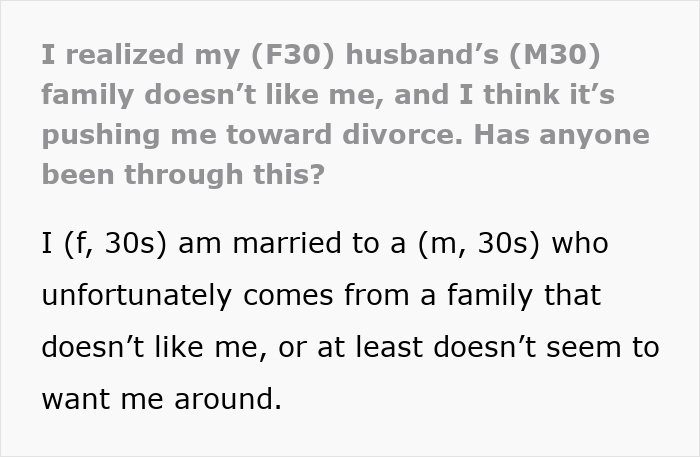

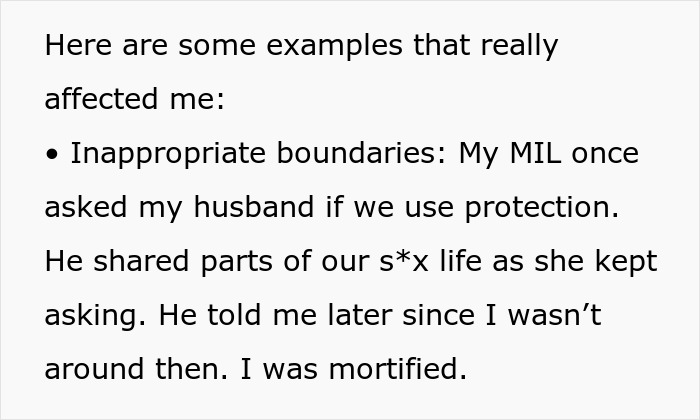

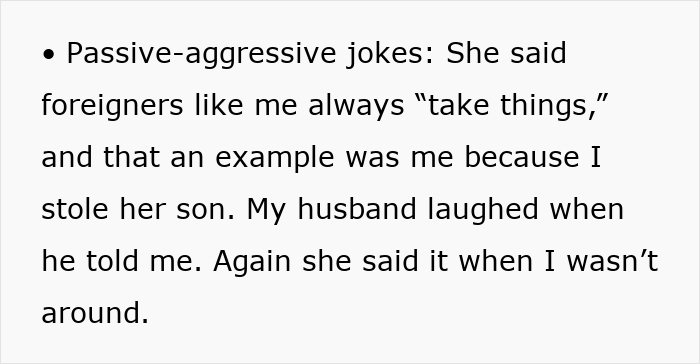
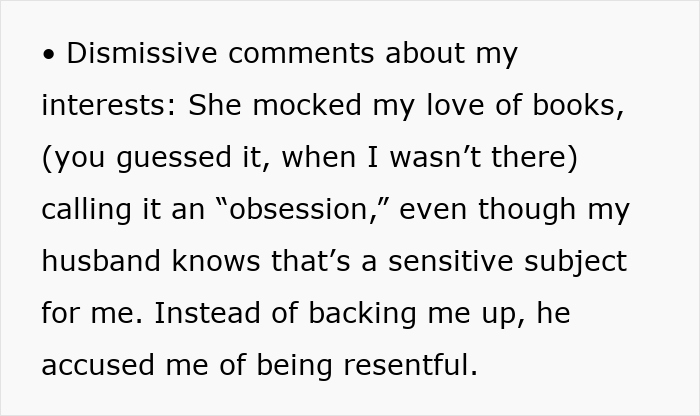

Image credits: Kayla Farmer / Unsplash (not the actual photo)
The passive-aggressive ‘jokes’ escalated to xenophobic comments about her being an immigrant

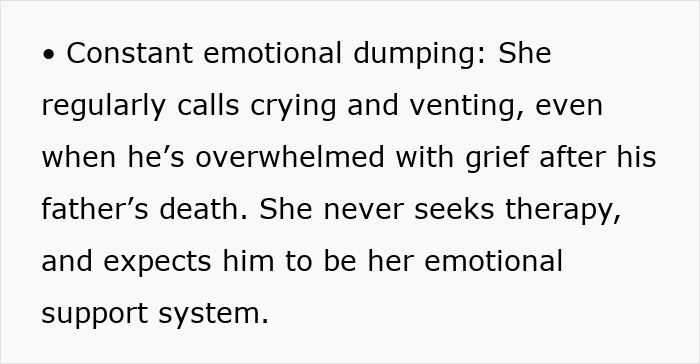
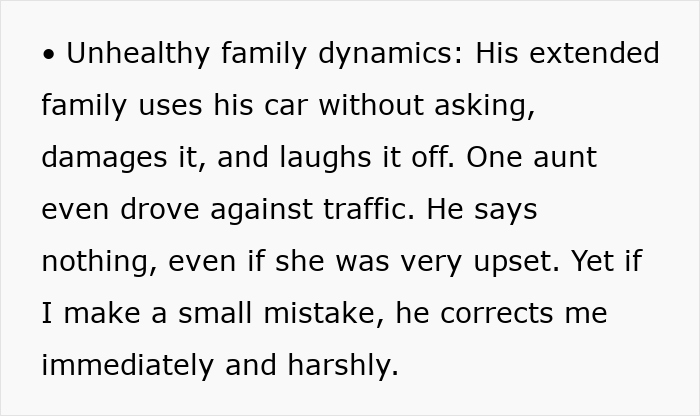
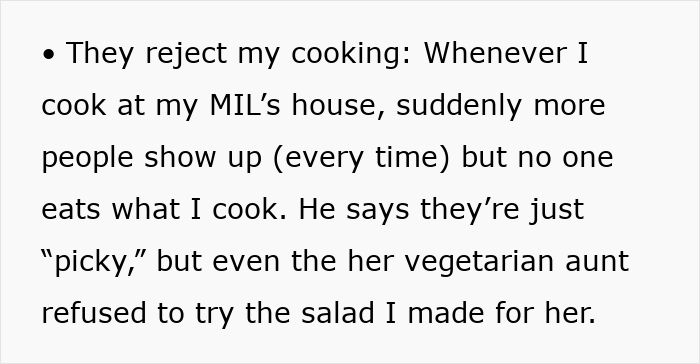
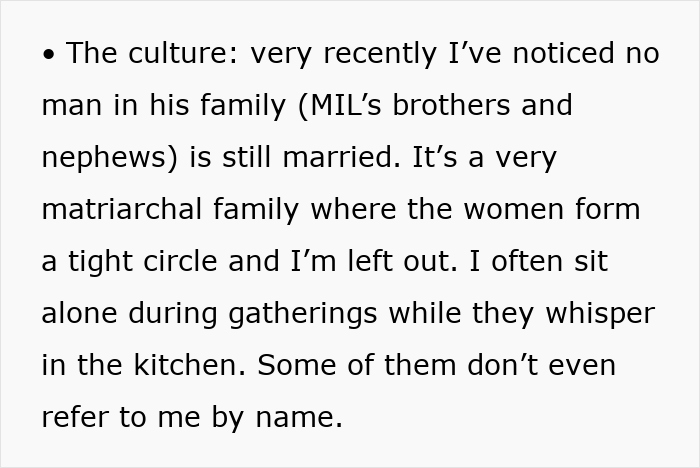

Image credits: Freepik / Freepik (not the actual photo)
Through it all, her husband dismissed her feelings, calling her ‘too sensitive’ and siding with his family
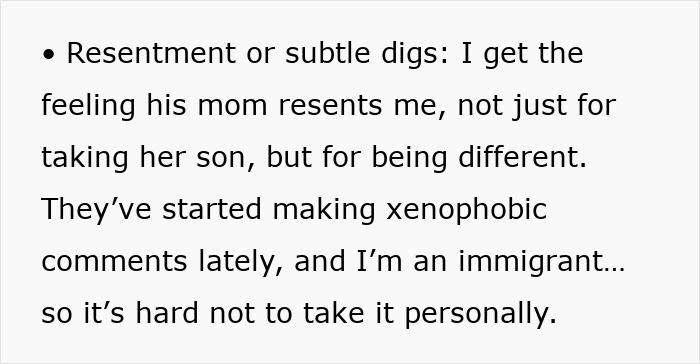

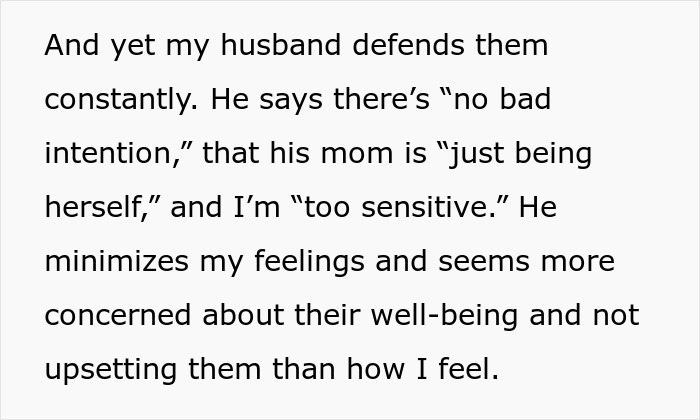



Image credits: Environmental_Tap838
She had even started to consider a divorce before Christmas, unwilling to spend another holiday as an outsider
One concerned wife, u/Environmental_Tap838, is realizing that she didn’t just marry her husband; she married his entire, very opinionated family, and they have clearly not approved her application to join. The red flags have been flying for years, starting with her mother-in-law asking her husband if they use protection, a conversation he not only participated in but later defended as normal.
The boundary-crossing is a family sport. Her MIL makes passive-aggressive jokes about her being a foreigner who “stole her son” (which her husband laughs at) and mocks her love of books. The cherry on top was the pre-wedding declaration from her MIL that she’d “always love him more,” a statement met with deafening silence from the entire family.
It’s not just a mother-in-law problem; it’s a full-blown family affair. The extended family uses and damages his car without consequence, while he harshly corrects his wife for the smallest mistakes. Every time she cooks for them, a crowd magically appears, yet no one touches her food, not even the vegetarian salad she made specifically for the vegetarian aunt.
Through it all, her husband has been a brick wall of defense…for them. He dismisses her feelings as being “too sensitive,” insists there’s “no bad intention,” and is more concerned with not upsetting his family than with supporting his wife. Now, feeling completely invisible, she’s dreading another lonely Christmas with them and is seriously contemplating giving him divorce papers as an early holiday gift.

Image credits: Daniel Martinez / Unsplash (not the actual photo)
Dealing with difficult in-laws often requires a degree of personal resilience and emotional management. Therapist Brooke Schwartz, LCSW, suggests practicing acceptance as a way to “let go of grudges and resentment” for your own well-being. This involves recognizing you can’t change your mother-in-law, but you can control your own reactions. But this strategy is only effective when your partner is on your team.
The core issue here isn’t just a difficult mother-in-law; it’s a partner who consistently fails to support his wife. Drs. Les and Leslie Parrott emphasize the need for spouses to stay on the same team and support one another. The husband repeatedly violates this by defending his mother’s inappropriate behavior, and this forces his wife into an oppositional role, destroying the partnership that is essential for navigating conflict.
When a spouse is unwilling or unable to create a boundary with their family of origin, professional help is often the only path forward. Drs. Les and Leslie Parrott recommend seeking a licensed counselor who can act as an objective third-party. A therapist can help the couple see resolutions they can’t on their own and can help the husband understand that his primary loyalty must be to his wife, not to the family he grew up with.
Is her problem really with her in-laws, or is it with the husband who refuses to be her partner? Have your say in the comment section!
Commenters agreed that she doesn’t have an in-law problem; she has a husband problem
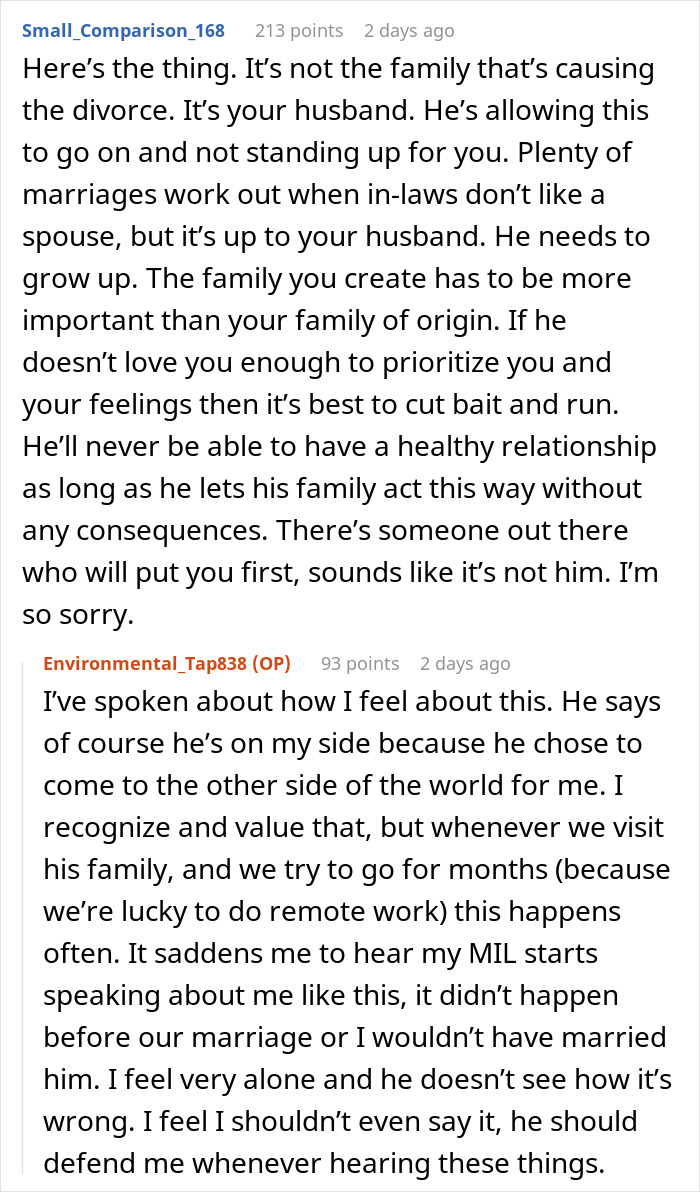
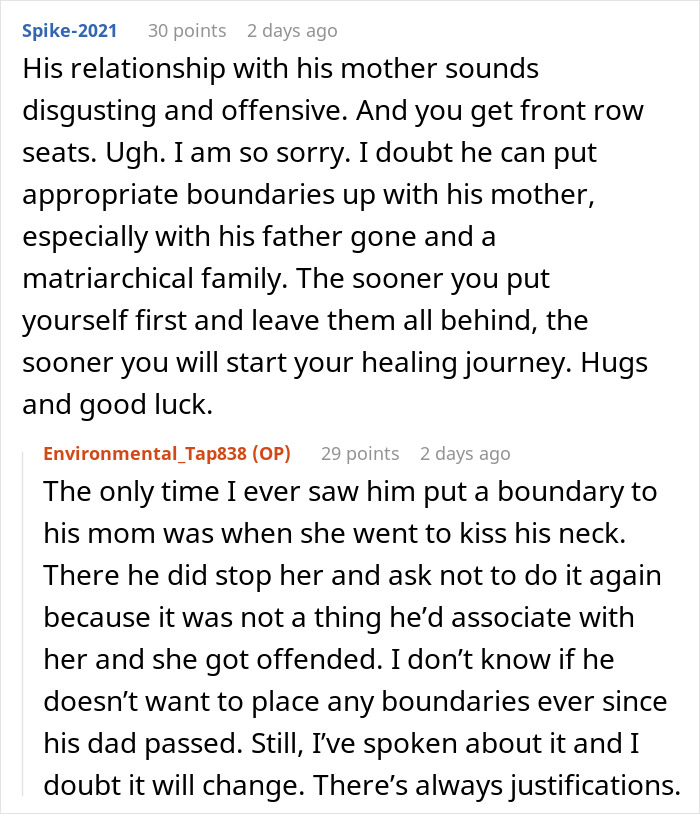

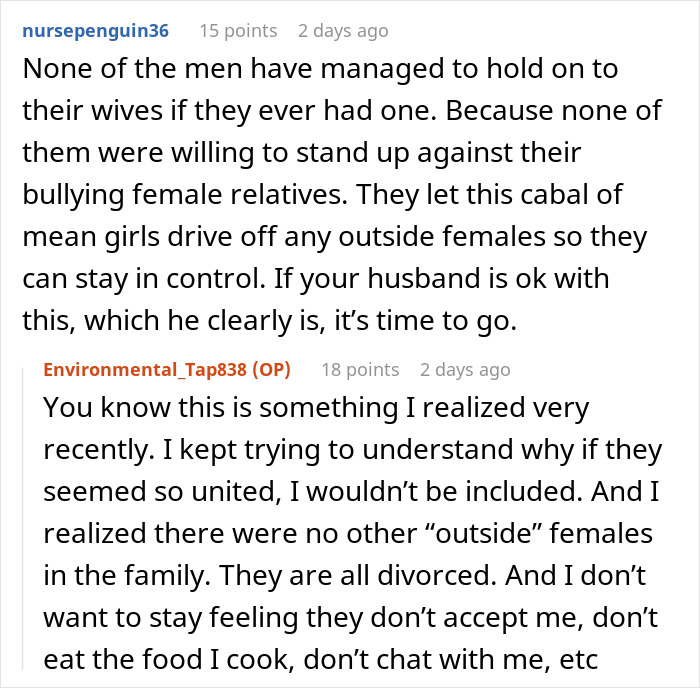
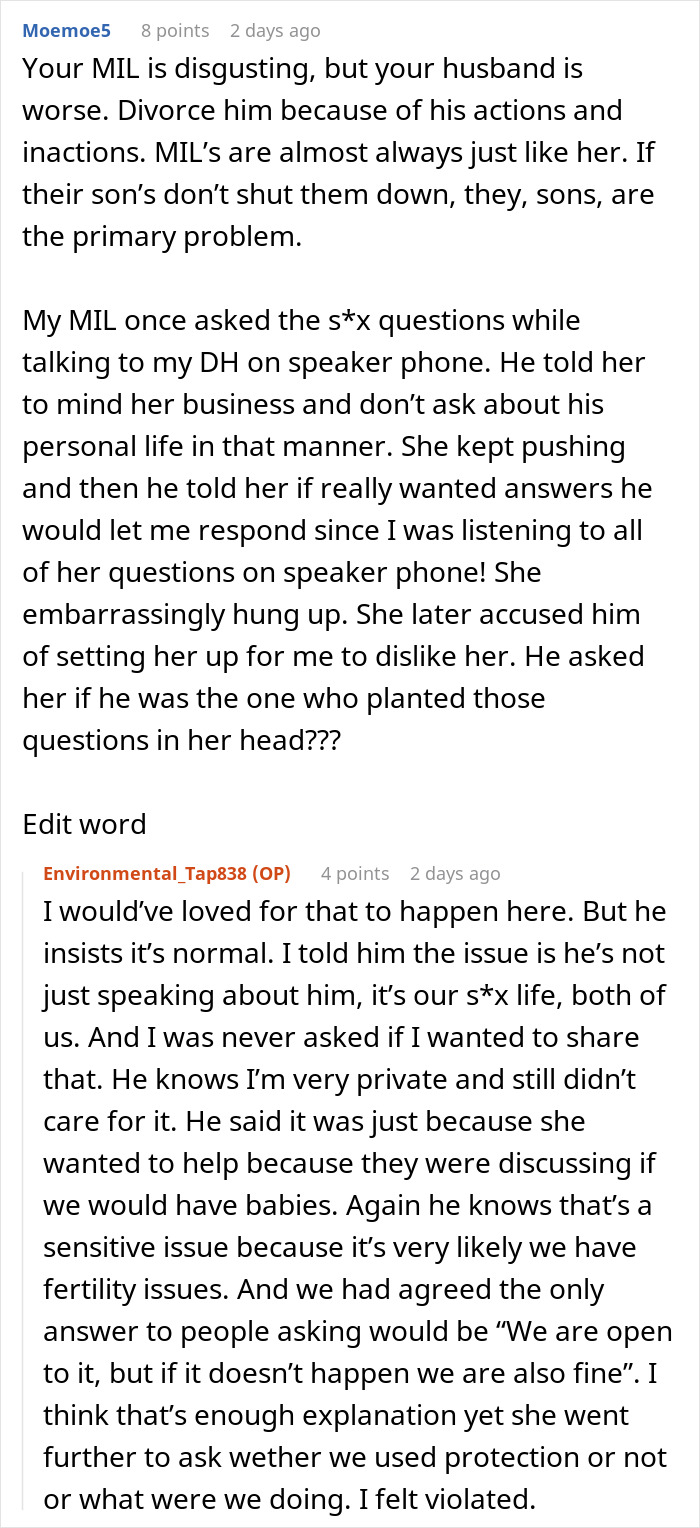


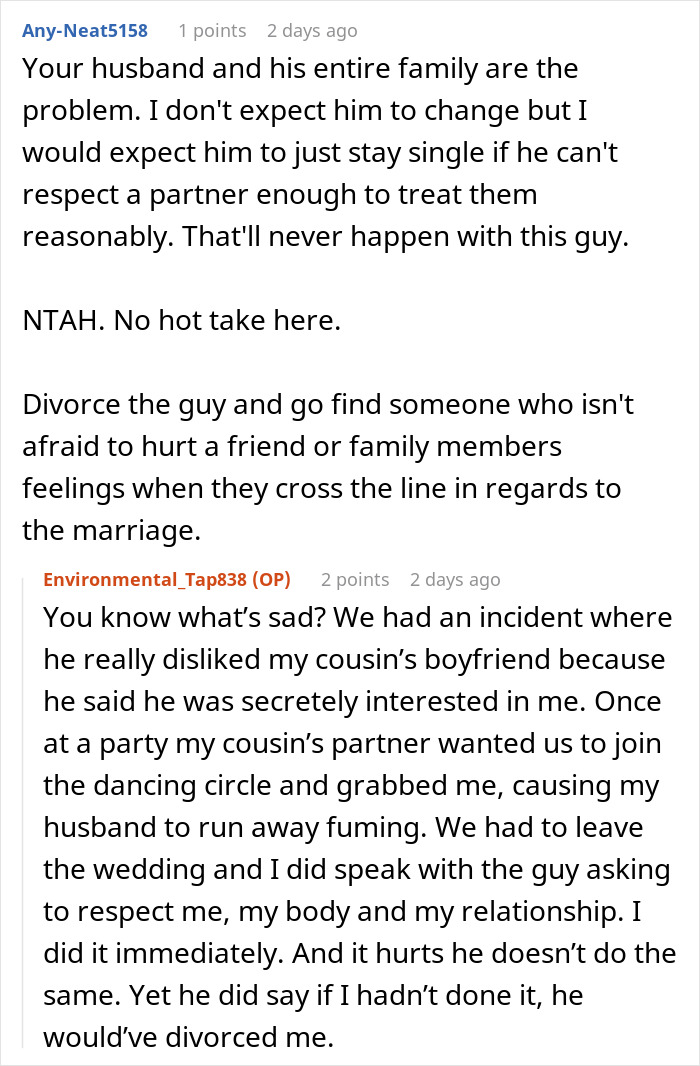



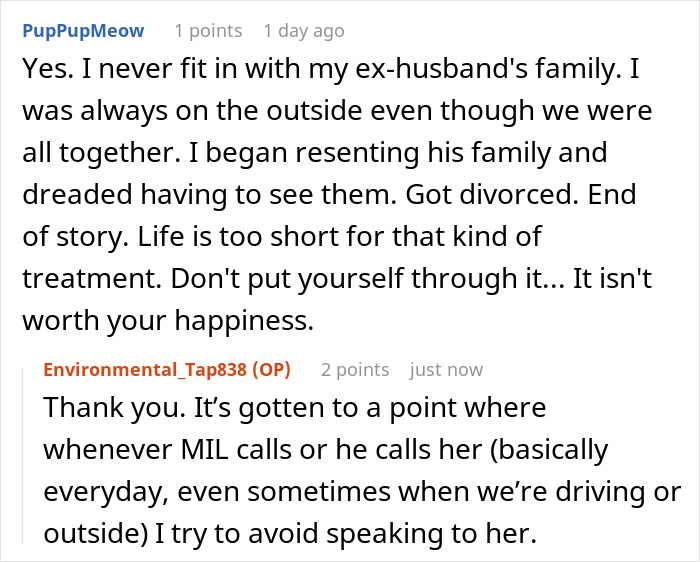


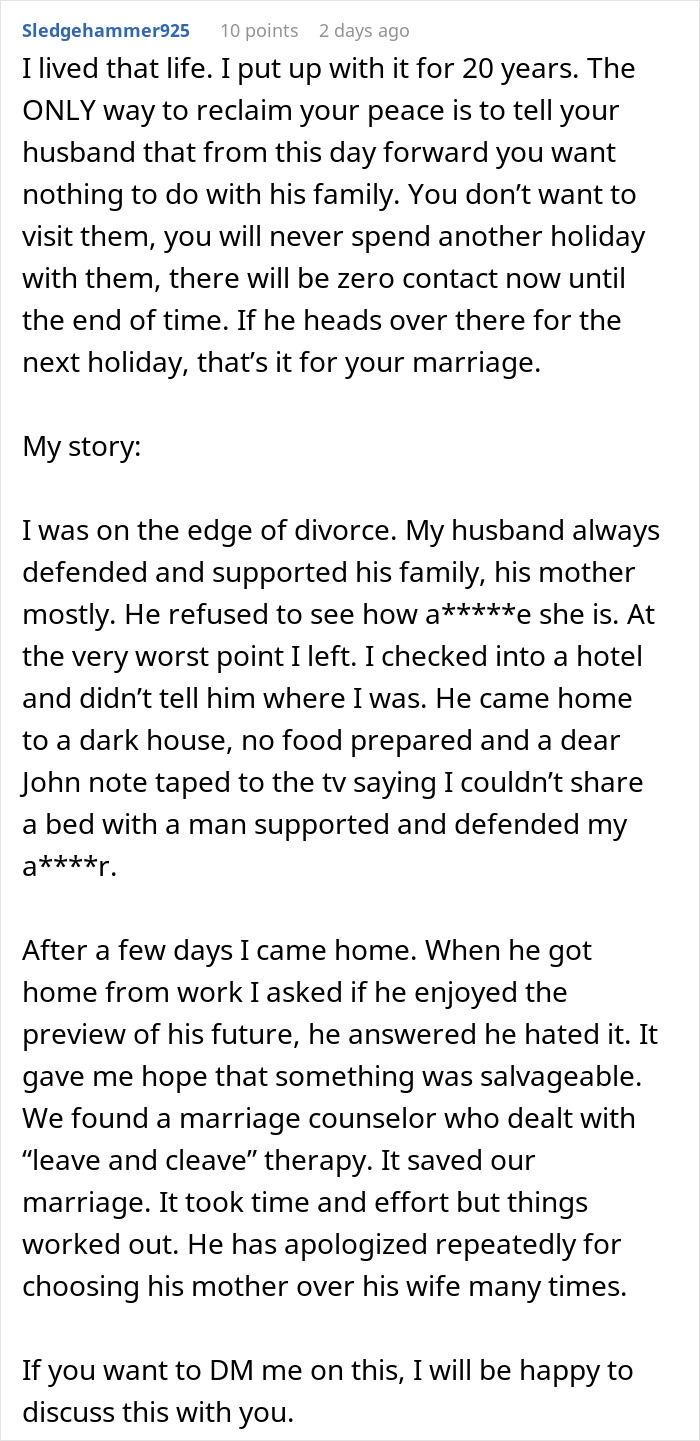


 Follow Us
Follow Us





